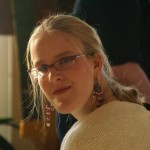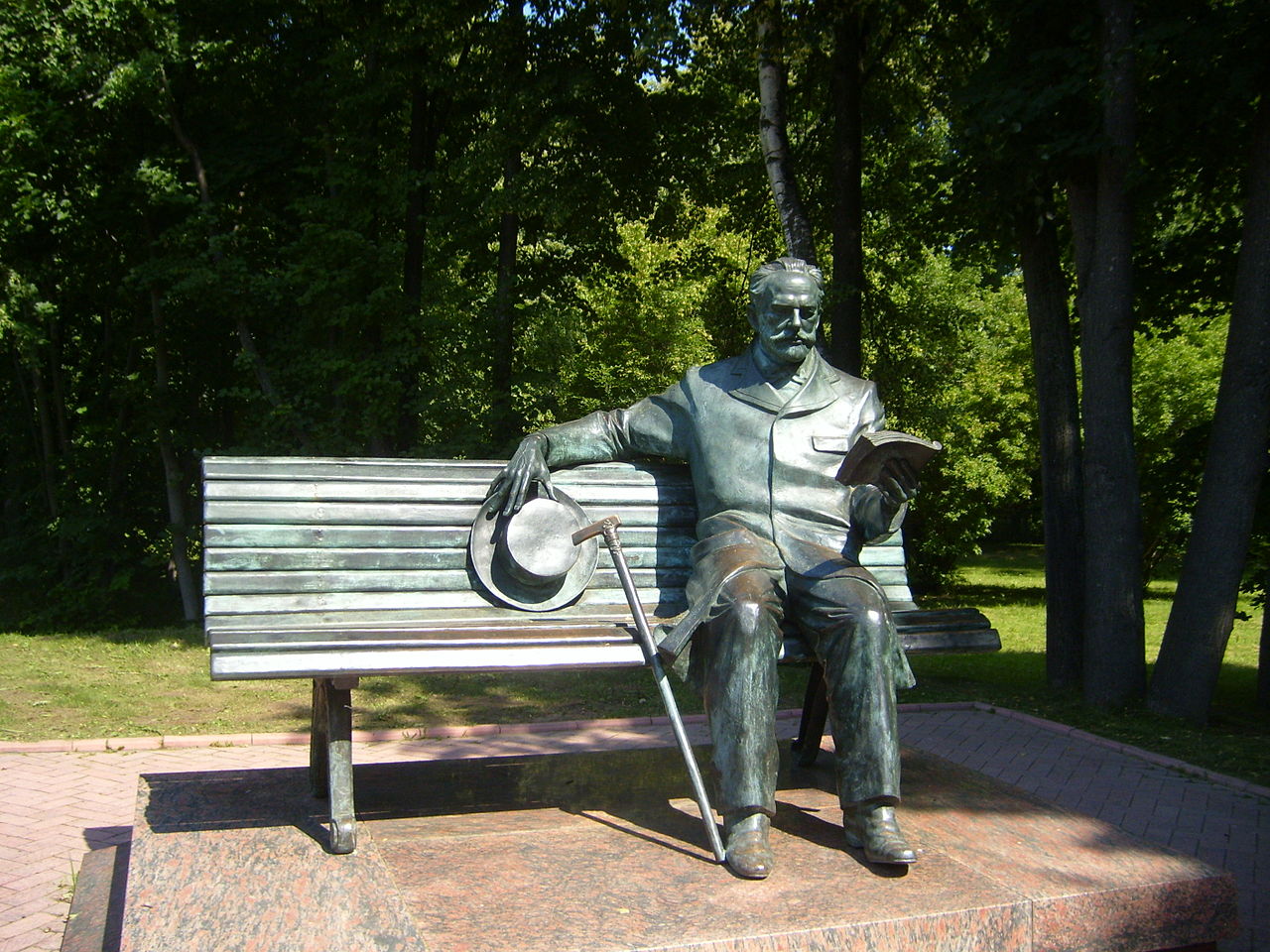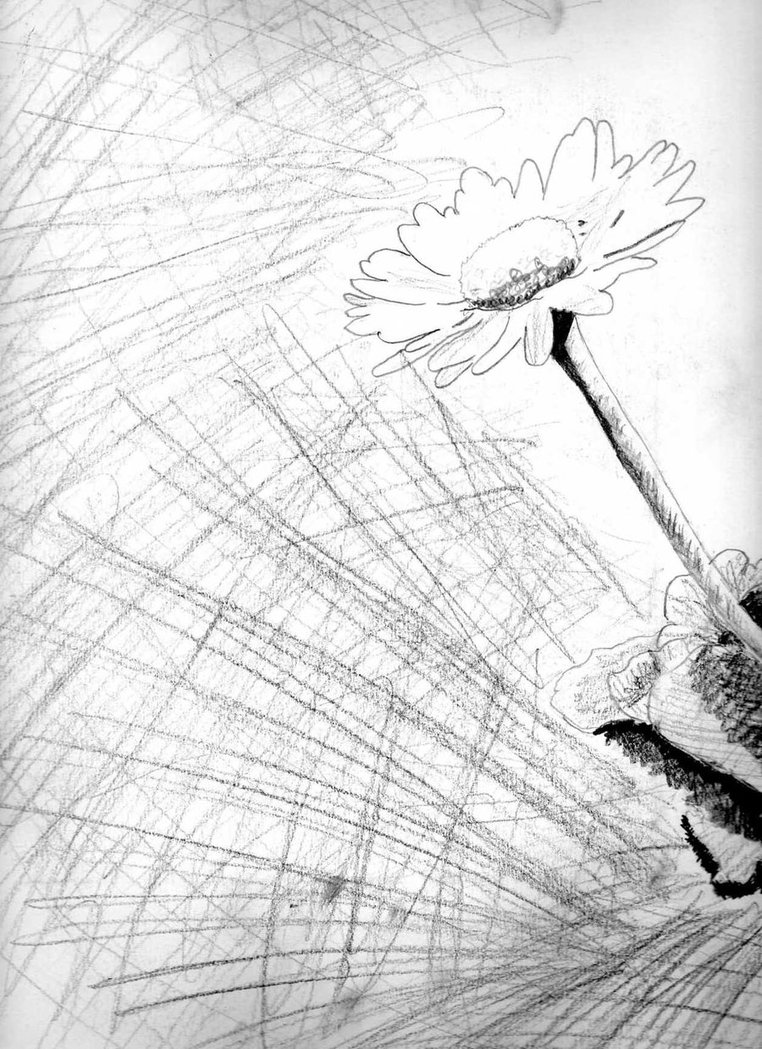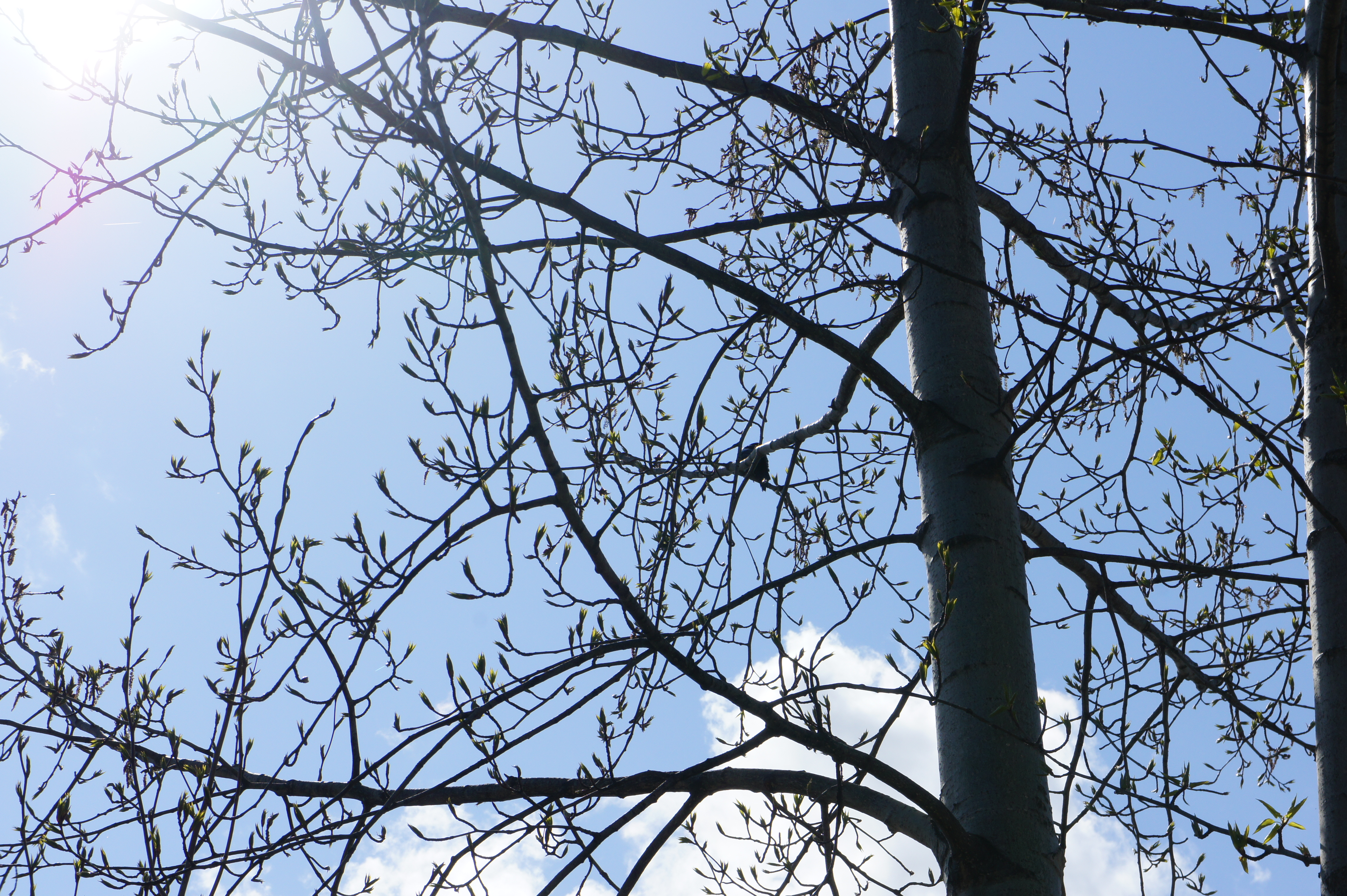by L.J. Bosela
The wind whipped around him as the individual snowflakes landed about his shoulders, dropping as if they’d much rather be somewhere else rather than falling from the sky and turning the autumn landscape into a winter one. The leaves formed a brilliant carpet along the road, and the bare branches overhead sang low like ghosts moaning in the breeze. He didn’t notice, and wrapped his arms tighter around his abdomen to keep from shivering. His mother would have reminded him to have put on a heavier coat, but his father, in his perpetual stupor, hadn’t and so the next gust of wind washed his face in place of the tears he couldn’t cry.
As he rounded the bend, he stepped off the crumbling asphalt and down into the gulley, where dried mud formed the remains of puddles and showed a rutted trail below the scarlet and golden leaves. At last, he looked up and realized how far he’d gone from their cabin and wondered if his father had noticed his absence, or if the silent piano was all the evidence of his disappearance. The sun shone like stage lights, brilliant and cold, blinding his eyes and causing him to shudder involuntarily.
“You aren’t playing it!” Gregorevich pounded the side of the piano with his cane.
“Yes, I am!” Anton thundered back. “I played it perfectly!”
“No. No, you are not.” The old man slumped into his chair and shook his finger at him. “You are merely playing the notes, in time, and in rhythm. But you are not playing the music. You have to mean it, feel it, express it.”
“I’m a pianist, not a hippie.” Anton crossed his ankles under the piano bench.
“This, this is Tchaikovsky. Russian music. Being a hippie does nothing. But you have to know what it is to be Russian to breathe with the music and really play it.”
“What?” Anton shut his eyes and rolled his head back onto his shoulders. “What’s that supposed to mean? How am I supposed to know what it is to be Russian?”
Gregorevich sighed heavily. “I cannot teach you that. You have to find what the Russian Masters knew on your own. Until then, you’ll only be playing the notes, and you’ll know nothing of the music. Not really.”
“What do I have to do?” Anton asked, opening one eye and watching his mentor shut the piano lid.
“I don’t know. Learn Russian. Study them. Whatever it takes.”
Anton cursed under his breath as a semi-truck rushed past him, the swirl of air nearly knocking him to his feet and the sound abruptly giving his head a queer ache and throb that left him feeling as if he was going to vomit.
A flurry of chirping birds billowed around him; they also were disturbed by the meteoric presence of the semi. Instinctively, he held out his hands, shaking and almost numb, to the creatures as they fluttered and complained about him. One or two slowed as though they would land before pulling up and beating the air with their fragile wings. The brush of feathers tingled on his fingers, reminding him of the crisp edges of sheet music and the lace runners his mother had once used to decorate the top of the piano he’d first learned to play.
“So tiny,” he mused. “So brave and strong. Those little wings, lifting them up. So beautiful.”
He was glad his father couldn’t hear his rhapsody about the birds; he already knew his father disapproved of most of his interests, and considered his gentleness and reticence as girly and childish.
“Why do you play?” Gregorevich sized him up.
Anton swallowed hard, wanting badly to impress the old man so that he’d take him on for the next year of lessons. “Because I love music. I mean, it’s everything to me.”
“Mhm,” was the old man’s response. For a moment, Anton was sure that the interview was over. “Nothing else?”
“What else is there?” Anton wondered if he’d fallen into a trap.
“Something. I just don’t think you even know it yet.”
Anton stood and hunched his shoulders down, cradling his chin between them as much as he could. Once, a girl had told him that he resembled a turtle shrinking into his shell when he did this, which he supposed was somewhat accurate.
“Tuesday, at four. Bring something challenging. Something you want to learn. You will come to breathe the music we learn together.” Gregorevich closed his eyes and settled deeper into his armchair. “Don’t be late.”
The roar of another passing semi engulfed him and he huddled down into the rutted gulley. The birds rose again in protest at the disturbance and he shouted angrily for them to come back, to stay with him. His own voice was drowned out and he held back the vomit in the back of his throat where it burned as his stomach churned again. At last, all was silent again, and he pulled his head up to gulp in the fresh, frigid air.
His eyes fell on the white line closest to him, where a small bird, its black chest buffeted by the wind, lie unmoving and mangled. With his own heartbeat sounding in his ears, he scooped up the body and cradled it in his hands. Stroking the feathers, he bite at his lower lip and told himself as calmly as he could that the bird was simply dead, and it was no fault of his own.
Dropping the bird into the edge of the woods, he shook and gazed at the sky, willing the burning in his eyes and stomach and heart to stop.
“Why do the beautiful things suffer? And why does the world just keep going like it never noticed a thing?” He thought of the roses his father would bring to his mother, and how she’d arrange them in vases to sit on the end of his piano, before they would wilt and turn crimson brown. He thought of her hands, thin and spidery, which had once been strong and able, how she had played the piano – long before he was born and before the cancer had taken hold of her bones.
And then he ran, the air ripping through his lungs and catching at his eyes. Entering the cabin, he ignored his father, slumped over the sofa. He dug his bag out from beside the piano and fished out his phone.
Waiting for the call to connect, he smiled and traced the keys with his left hand.
“Yes, Gregorevich? It’s Anton. I… I can play now. I know what the Russians were asking and thinking, and, well, I can play. I found the Russians.”
[divider]
About the Author: L.J. Bosela
 L.J. Bosela was raised in Sterling on the Kenai Peninsula. She writes mostly fiction, with a special interest in fantasy in the style of Tolkien, Lewis, and McKillip. Outside of writing, she also enjoys reading, drinking tea, listening to classical and folk music, and spending time walking through woods, bookstores, and antique shops.
L.J. Bosela was raised in Sterling on the Kenai Peninsula. She writes mostly fiction, with a special interest in fantasy in the style of Tolkien, Lewis, and McKillip. Outside of writing, she also enjoys reading, drinking tea, listening to classical and folk music, and spending time walking through woods, bookstores, and antique shops.





5 Comments
Kellyn M.
I really enjoyed your use of imagery, they were both beautiful and aided in clarifying where the transitions in your piece were. I thought that the way your described the mother figure conveyed classic characteristics for such a role, which made it very relatable as a reader. I could imagine myself in the role of the piano player because of the connection you gave me to this mother figure. Also, your subtle allusion to death gave the story a rich and mournful tone. The connection to the mother figure in addition to the tone present throughout the piece made it that much more heartbreaking when the death of the woman in revealed. Overall a very moving and lovely to read piece.
Alexa Daniels
Great short story! I really loved the imagery in this piece and the obvious passion that was incorporated. As soon as the story opened I was intrigued and wanted to read the whole thing. Hopefully you continue writing, I think you could do great creative children’s books.
Julia Woodring
This piece was very relatable to me as I have played piano for years and have heard from many people that you need to play with your emotions as well as the rhythm and notes. This exemplified the confusion one feels and then they discover what the teacher or artist meant.
Sarah
I really enjoy the spirit of this story. You have a fantastic knack for description, I felt like I was at Anton’s side as the semi-trucks raced past, and when he found the bird. The little details too, like his relationship with his father and his mother’s illness, they help to paint a better picture of who this character is. Wonderful. I sincerely hope you continue you’re writing.
Emily
This is great! I felt as if I was in the moment with Anton, every step of the way. I really liked your use of descriptive words. I was impressed by the deeper meaning between the bird and Anton’s mother.
I really loved this story and I can’t wait to read more!